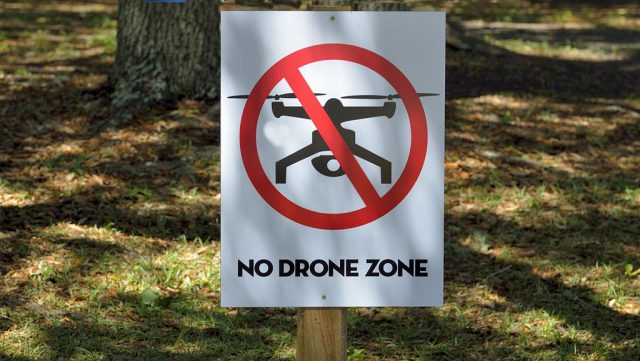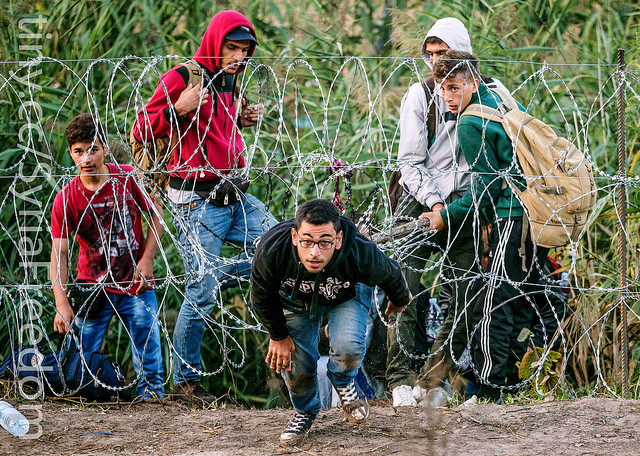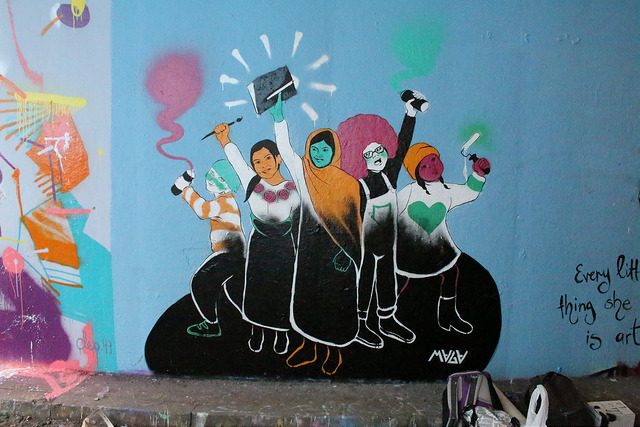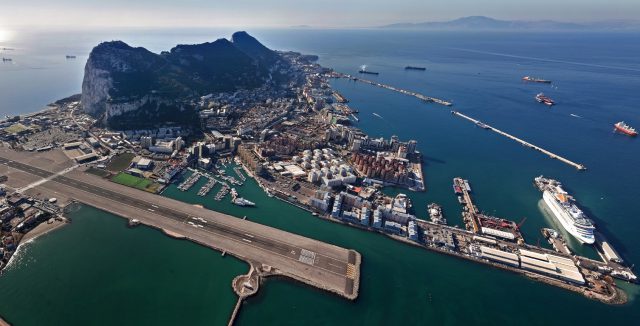ASPI suggests

The world
Although French President Emmanuel Macron appeared to be on his best behaviour during his visit to Washington, his speech to Congress demonstrated that the Franco–American partnership will undoubtedly be tested. Carnegie offers a slick analysis of the most pressing issues concerning Paris, especially where US President Donald Trump and Macron are likely to butt heads: climate change, the Iranian nuclear deal and trade policy.
After two weeks of peaceful protests in Armenia (video explainer), former president-turned-Prime Minister Serzh Sargsyan resigned. Foreign Policy pulls the plug on speculation that Russia was involved, Chatham House dissects the local political challenges facing the small Eastern European state and Carnegie situates domestic challenges related to populism and nationalism within wider international trends such as a resurgent Russia and relations with the EU.
Speaking of nationalism and populism, Salon’s latest piece on the rise of ‘fascist fashion’ is a fascinating read, explaining how certain trends and styles should be understood to be embedded in particular social and cultural environments that could serve as gateways to radicalisation. For a more academic perspective, read Daniela Pisoiu’s excellent study of the application of subcultural theory to individual cases of jihadi and right-wing radicalisation in Germany. Vice’s exposé on American sociologist Theodore Abel’s 1934 experiment explains why people were (and are) attracted to Nazism. And for those with a penchant for tackling extremism digitally, check out this new plug-in software—‘No Platform for Fascism’—intended to help anyone who wants to register a complaint about far-right video content on YouTube.
An intriguing study from Lancaster University explores human perceptions of colour—in particular, how our perception of colour is likely down to personal experience such as synaesthesia, terminology or even language. To follow, here’s a selection of studies that analyse different aspects of language: CSIS discusses language barriers in Iraqi Kurdistan, Quartz talks about the resource potential of Africa’s multilingualism, and the ABC’s in-house language researcher Tiger Webb dissects Australians’ historic struggle to pronounce ‘Australia’.
A grim piece explores one of the worst excesses of the British Empire: the Criminal Tribes Act passed in 1871. The act allowed particular Indian communities to be designated as ‘hereditary criminals’ in order to deal with the dangers of mass unemployment (as a result of British policy). Many were classified as ‘criminal tribes’ and forced to work. This became a way of generating a ‘powerless, commoditized labour force’.
A couple of long reads are well worth your time: Maya Rao recounts life as a woman on the North Dakota oilfields, and The New Yorker explores how American racism influenced Hitler. Over at the Modern War Institute, commander of the Australian Defence College, Major General Mick Ryan, has published a reading list covering all things artificial intelligence. And in a punchy interview for GQ, former Labour Party leader Ed Miliband talks to Tony Blair’s former spin doctor, Alastair Campbell. Topics include Brexit and bacon sarnies, a familiar struggle for his Australian counterpart, it seems …
Tech geek
Future fighter aircraft have been in the headlines this week. Lockheed Martin is promoting the idea of an F-22/F-35 hybrid for Japan that would involve integrating advanced F-35 avionics and computers into an updated F-22 airframe. Such an aircraft—if it were ever made—‘could be superior to both original versions’. The challenge would be affording what would be an entirely new fighter program in an already tight fiscal environment.
China is suggesting that future development of the J-20 could include ‘metamaterials’ that will enhance the aircraft’s stealth capabilities. If true, exploiting metamaterials would make it hard to detect the jet with radar, and potentially also by the human eye, bringing a Star Trek–style ‘cloaking device’ a step closer to becoming fact, not science fiction.
Russia’s Victory Day parade in Moscow is scheduled for 9 May. This is an annual opportunity for Russia to put its advanced military technology on display. Likely to appear this year are the T‑14 Armata main battle tank, the Su‑57 fifth-generation fighter and Russia’s new BMPT‑75 ‘Terminator 2’ urban warfare vehicle. Russian MiG‑31BM interceptors armed with Mach 10 Kinzhal air-launched ballistic missiles may also fly over Moscow. Watch a video (with Russian audio) of rehearsals here. The Russians will also demonstrate robotic tanks for the first time.
Finally, and given we’re talking about Terminators, a new report from the RAND Corporation suggests that artificial intelligence might destabilise nuclear deterrence by making it easier to detect and track an opponent’s nuclear forces, thus making a first strike easier.
Multimedia
This New York Times photo series captures the stark smog pollution in Poland, where 19 million people use coal to heat their homes, resulting in 48,000 deaths ‘annually from illnesses related to poor air quality’.
In this documentary, DW looks at Dennis Rodman’s naïve attempts to get involved as a peacemaker on the Korean peninsula. [42:31]
Buzzfeed and Apple News started distributing the mini-documentary series ‘Future History: 1968’, which looks at events from 1968 with technology from today. Very cool! [each episode approximately 10:00]
Podcasts
The BBC Worlds Service’s Tim Whewell talks to Russian mothers whose sons took their wives and children with them when they went to fight for IS. The mothers are now trying to get their daughters-in-law and grandchildren back. Whewell also travels to Iraq to trace the missing families’ routes and learn their fate. [26:29]
Beth Oppenheim talks to Sophia Besch about the difficulties the UK and the EU face as they try to negotiate the conditions for European military cooperation and defence industrial policy after Brexit for the Centre for European Reform. [14:09]
Events
Canberra, 30 April, 3.30–5.00 pm, ANU Coral Bell School of Asia Pacific Affairs, ‘Unravelling the inter-Korean summit’. Info and registration here.
Sydney, 30 April, 5–7 pm, AIPIO NSW and Department of Security Studies and Criminology at Macquarie University, ‘Producing intelligence collaboratively’. More here.
Canberra, 2 May, 11 am, ANU College of Science: ‘Talking to artificial intelligence: an anthropologist’s perspective’. Details here.









